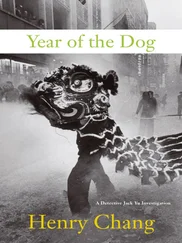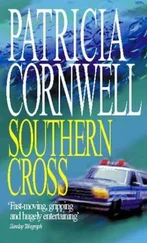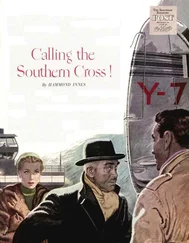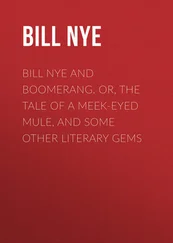THE FOLLOWING DAY, HE WENT on foot following two gleaming rails into the next town. In Hollandale, a boy was giving out leaflets written in a bad hand: $2 a day. Strong backs wanted. It gave the address of a small brick building a mile from the main stretch. He went upstairs and put his name on a piece of paper. The next morning, he climbed on the back of a truck and, with half a dozen other men, was driven out to Panther Swamp.
For a month he cleared the land, hacking through thorn and brush, laying down pounds of tree killer. There were fifteen-hour days crossing through the wet country, trailing the chalky white poison into the swamp. When the weather turned, he pierced the plates of hard earth to where the soil was warm and black and musky and he’d gouge out the brittle tangle of taproots with a spade. It was hard work and by day’s end, his back would scream and his muscles would lie slack and dumb on his bones. On the truck ride back to the company apartments in Hollandale, he couldn’t feel anything, just the warm throb where his legs had been. Out beyond the truck bed, the country darkened around him. There were lights in the far-off farmhouses and he’d try to count them before they’d pass or blink away.
He took an advance on his pay for an upstairs room in a boardinghouse on the edge of Hollandale. It was four walls and whatever light made it through the branches of the maple outside his window. He ate his dinners on the sill, looking out away from town. It was an empty country, big with sky and grass. On the weekends, he could see the small plots on the town’s fringe, a gold-colored tractor chugging in the distance. A ribbon of smoke rose up from the distant chimneys, gray and curling and pretty, and his mind would set to wandering.
There were years now, marching fat and wide through the valley of his brain. He thought of Ellis and Etta, who were most probably dead now or at least good as dead. He thought of Hermalie. When they’d dug that limp small body out of the ash, he had barely recognized her. He stood at that windowsill, his food cooling, his head emptying. There were too many days for too much world, too much time to wrong and be wronged. And each day weighed on him heavier than the last — so much sun, so much sky and cloud — and he reached through those years, before Bruce and the Hotel Beau-Miel, to that miserable ramshackle cabin — his father, his mother, his brother, shaking beetles from their clothes, and part of him reasoned that somewhere still, they were there, the hearth fires going, the air heavy with sweet ash. He pictured his father’s hand, forever big and warm on the back of his neck.
IN THREE MONTHS HE FOUND his way to George Burke’s crew, mucking out in the deep swamp. The crew worked seventeen-hour days, six days a week out in the mosquito nests, trying to slow the flow of the river. They dug trenches and piled mud and mixed concrete for the diverting walls. In the mornings, the men would watch their foreman wade out from the banks, clearing the rocks into the silver run. His shirt was off, showing his broad tan back. Burke would float a yellow rope into the channel, and the end would catch in the current, speeding forward, straightening out its slack. A man some meters downstream would call the time, signaling for Burke to halter the slack. Then he’d wade back, the rope coiled about his shoulders. Too fast, he’d call to the men. Still too fast.
The work was grueling, but Robert admired Burke. He never cheated him his pay or kept him from the machine work. In Burke’s crew, he was allowed to drive plow trucks and graders and dig cranes. By day’s end, climbing up to his apartment, he could still feel the hum of the engines in his body, the buzzing in his bones. His blood was toxic, the tang of diesel in his spit. He’d enter the dark room, sling off his boots, and lay his clothes out carefully on the chair back. But on his mattress, every nerve worked raw, he closed his eyes, and there on the other side of dreaming, the Dog waited.
Morning would come and the days would draw on. The order had come down for his crew to be reassigned to demolition duty. For months they turned chunks of green country into a fine burnt powder. Level this dam, bury that hill, fill that gully. They stopped their ears with cotton, and when the all clear was given, it was Robert who depressed the plunger. The ground quaked and an awful noise wracked the sky. They tucked their heads to their knees against the hail of mud and stone. His mouth was full of cordite. He brought his head up again and the ground was new, clear. The world hummed for hours after each detonation. He stepped from behind the bunker and walked across the halo of scorched earth. He stood at the center of the crater, measuring by sight its width and depth. He multiplied the poundage in his head. It was fortifying — the landscape blasting to pieces around him. Birds fled the trees. The blast traveled through his bones, rattled his teeth. The cascade of after-dust lashed his cheek. Slowly air and noise and birdsong returned again to the world. He was still there. Anchored. There was a freedom in that. He discovered the sphere of his reach, like a fighter, Death dancing just beyond his jabs.
He could not stop.
At every demolition, he’d pack more and more explosives into the charges and would ignore the safety protocols, often depressing the plunger before all the men could get to cover. He thrilled at every blast, standing exposed beyond the safety of the trench. He drew out the cotton from his ears and let the godly crack drive through his skull.
He grinned at the outraged earth.
Once there’d been a choke in the run and Burke took the crew upriver to investigate. By midafternoon, they found a beaver dam, eighty yards across, climbing six feet high from bed to pitch, stanching off one of the minor tributaries. A wall of mud and sticks and stone bowed into the stream. The surrounding marshland was soft with flooding. Protocol dictated that the crew was to shovel out the dam by hand and set out poison to keep the beavers from building again. To do it safely, it would be a month of backbreaking toil in mosquito country, cracking up the bits of stone and twig with shovels, little by little, and little by little widening the artery.
To do it recklessly, however, would take hardly any time at all.
Robert went on-site the next morning hours earlier than the rest of the crew. He went alone into the water, yoked on either side by a long yellow rope. He went in with cement putty and charges sealed in plastic and prepped along the dam, slathering the goo with the heel of his hand and fixing the charges in place.
From the banks Robert forced down the handle on the detonator. For a moment, there was nothing. Then immediately there was a series of three pops, sucking up the air. The river belched and gulped, and a rush of sediment shot across the channel. The air filled with smoke and mist and burning splinters. The earth groaned. The surviving pieces of wall shifted in the current and broke apart against the pressure of the stream.
Robert unstopped his ears. His skull was full of static. He could feel the blood returning to his face and looked out toward the bank where a large crater was now sitting.
When Robert returned to the camp, some of his crewmates were already waiting for him. Robert took in the stillness in their faces. There were four of them, each one carrying a piece of iron rebar, and he understood what it was they wanted.
The men spaced themselves out around him, enclosing him in a circle. One man approached and swung. Robert felt his breath explode.
He took a step back and looked up. A piece of iron came down and clipped the side of his head. One of the men was barking something, but already, he couldn’t hear. His blood was pumping. The man was heavyset, his dark eyebrows set into a scowl. Robert wrestled the man down onto the ground and began to beat him senseless before the other three set themselves upon him. It was George Burke who finally broke up the fight, spraying them down with the hose.
Читать дальше












